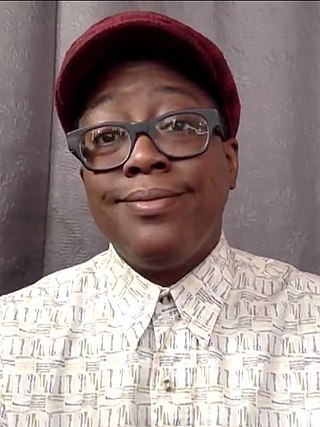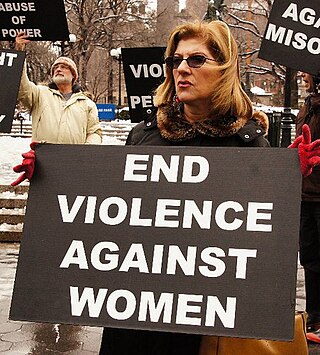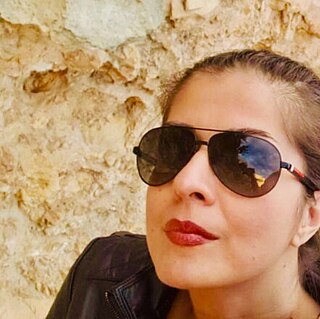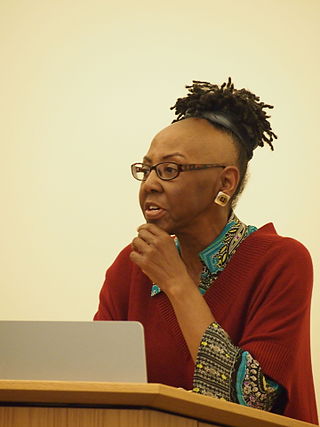Related Research Articles

Barbara Jean Hammer was an American feminist film director, producer, writer, and cinematographer. She is known for being one of the pioneers of the lesbian film genre, and her career spanned over 50 years. Hammer is known for having created experimental films dealing with women's issues such as gender roles, lesbian relationships, coping with aging, and family life. She resided in New York City and Kerhonkson, New York, and taught each summer at the European Graduate School.
Sonali Gulati is an Indian American independent filmmaker, feminist, grass-roots activist, and educator.
Nancy Kates is an independent filmmaker based in the San Francisco Bay Area. She directed Regarding Susan Sontag, a feature documentary about the late essayist, novelist, director and activist. Through archival footage, interviews, still photographs and images from popular culture, the film reflects the boldness of Sontag’s work and the cultural importance of her thought, and received funding from the National Endowment for the Humanities, the National Endowment for the Arts, the Foundation for Jewish Culture and the Sundance Documentary Film Program.

Cheryl Dunye is a Liberian-American film director, producer, screenwriter, editor and actress. Dunye's work often concerns themes of race, sexuality, and gender, particularly issues relating to black lesbians. She is known as the first out black lesbian to ever direct a feature film with her 1996 film The Watermelon Woman. She runs the production company Jingletown Films based in Oakland, California.

The Frameline Film Festival began as a storefront event in 1976. The first film festival, named the Gay Film Festival of Super-8 Films, was held in 1977. The festival is organized by Frameline, a nonprofit media arts organization whose mission statement is "to change the world through the power of queer cinema". It is the oldest LGBTQ+ film festival in the world.
Su Friedrich is an American avant-garde film director, producer, writer, and cinematographer. She has been a leading figure in avant-garde filmmaking and a pivotal force in the establishment of Queer Cinema.
Peggy Ahwesh is an American experimental filmmaker and video artist. She received her B.F.A. at Antioch College. A bricoleur who has created both narrative works and documentaries, some projects are scripted and others incorporate improvised performance. She makes use of sync sound, found footage, digital animation, and Pixelvision video. Her work is primarily an investigation of cultural identity and the role of the subject in various genres. Her interests include genre; women, sexuality and feminism; reenactment; and artists' books. Her works have been shown worldwide, including in San Francisco, New York, Barcelona, London, Toronto, Rotterdam, and Créteil, France. Starting in 1990, she has taught at Bard College as a Professor of Film and Electronic Arts. Her teaching interests include: experimental media, history of the non-fiction film, and women in film.

Debra Chasnoff was an American documentary filmmaker and activist whose films address progressive social justice issues. Her production company GroundSpark produces and distributes films, educational resources and campaigns on issues ranging from environmental concerns to affordable housing to preventing prejudice.
Yvonne Welbon is an American independent film director, producer, and screenwriter based in Chicago. She is known for her films, Living with Pride:Ruth C. Ellis @ 100 (1999), Sisters in Cinema (2003), and Monique (1992).

Thomas Allen Harris is a critically acclaimed, interdisciplinary artist who explores family, identity, and spirituality in a participatory practice. Since 1990, Harris has remixed archives from multiple origins throughout his work, challenging hierarchy within historical narratives through the use of pioneering documentary and research methodologies that center vernacular image and collaboration. He is currently working on a new television show, Family Pictures USA, which takes a radical look at neighborhoods and cities of the United States through the lens of family photographs, collaborative performances, and personal testimony sourced from their communities..

Tami Kashia Gold is a documentary filmmaker, visual artist and educator. She is also a professor at Hunter College of the City University of New York in the Department of Film and Media Studies.

Soudabeh Moradian is an Iranian-American independent filmmaker. A number of her movies have been in official selection of various international film festivals and many of them won awards. She has made many documentary series about Iranian rural women, and some independent documentaries about "war and madness" such as "Doomsday Machine"," Story Of The Land On Ashes","Mahin", "Voices Against Them" and some other narrative and docufiction films and series like "The Leader of Caravan","My Name Is Tomorrow" and "Les Chroniques d'iran". She made her first full feature-length narrative called Polaris in 2014 in Los Angeles and Seattle starring Bahram Radan, Alicja Bachleda, Elisabeth Röhm and Coby Ryan McLaughlin. The subjects of her movies are mainly based on social issues, women and psychological impacts of war.

Michelle Handelman is an American contemporary artist, filmmaker, and writer who works with live performance, multiscreen installation, photography and sound. Coming up through the years of the AIDS crisis and Culture Wars, Handelman has built a body of work that explores the dark and uncomfortable spaces of queer desire. She confronts the things that provoke collective fear and denial – sexuality, death, chaos. She directed the ground-breaking feature documentary on the 1990s San Francisco lesbian S/M scene BloodSisters: Leather, Dykes & Sadomasochism(1995), described by IndieWire as “a queer classic ahead of its time, a vital archive of queer history.” Her early work included 16mm black and white experimental films combined with performance. She is also known for her video installations Hustlers & Empires (2018), Irma Vep, The Last Breath (2013-2015), and Dorian, A Cinematic Perfume(2009-2011). In 2011, she was awarded a John Simon Guggenheim Memorial Fellowship for her film and video work.

Michelle Parkerson is an American filmmaker and academic. She is an assistant professor in Film and Media Arts at Temple University and has been an independent film/video maker since the 1980s, focusing particularly on feminist, LGBT, and political activism and issues.

Andrea Weiss is an American independent documentary filmmaker, author, and professor of film/video at the City College of New York where she co-directs the MFA Program in Film. She was the archival research director for the documentary Before Stonewall: The Making of a Gay and Lesbian Community (1984), for which she won a News & Documentary Emmy Award.
The Paris Feminist and Lesbian Film Festival is a women-only film festival founded in Paris, France, in 1989. The festival is organized by Cineffable, an association dedicated to promoting lesbian cinema, and encouraging lesbian creativity.

TJ Cuthand, also credited as Theo Cuthand and Thirza Cuthand, is a filmmaker and performance artist, writer and curator of Plains Cree as well as Scottish and Irish descent. He is credited with coining the term Indigiqueer, for modern Indigenous LGBTQ people. In May 2022, he changed his name to TJ Cuthand and came out as a trans man.
Nneka Onuorah is a director and producer. She is best known for her directorial debut, The Same Difference (2015), about gender roles in the Black lesbian community. She received a 2022 Primetime Emmy Award for Outstanding Directing for a Reality Program for her work on Lizzo's Watch Out for the Big Grrrls.

It's Elementary: Talking About Gay Issues in School is a 1996 American documentary film directed by Debra Chasnoff and Helen Cohen. It provides educators with information on how to teach elementary schoolchildren to be tolerant of gay and lesbian people. The film was noted as the "first of its kind" and was generally well received, although there was some backlash from conservatives. It was released in several film festivals, and had screenings in the 2000s.

The Women's Interart Center was a New York City–based multidisciplinary arts organization conceived as an artists' collective in 1969 and formally delineated in 1970 under the auspices of Women Artists in Revolution (WAR) and Feminists in the Arts. In 1971, it found a permanent home on Manhattan's far West Side. A trailblazing women's alternative space, the Center provided exhibition and performance venues, workshops, and training courses for artists in a wide range of media for over four decades, with a focus on developing women's skills, bringing their work to the public, and fostering innovation. Prominent visual artists exhibited at the Interart Gallery, which in 1976 mounted the first ever festival of black women's film. The Interart Theatre—the Center's off-off-Broadway stage—and its productions won numerous honors. The Center hosted the Women's Video Festival for several years and ran a video program responsible for a variety of notable works.
References
- ↑ "Faculty Member Awarded Grant". Norwalk Community College. Retrieved June 22, 2021.
- ↑ "Madcat Women's International Film Festival". Archived from the original on March 17, 2012. Retrieved January 2, 2012.
- ↑ "Smith College: News". www.smith.edu. Retrieved June 22, 2021.
- ↑ "THE BYRD SOCIETY - Cineffable 2012". www.cineffable.fr (in French). Retrieved June 22, 2021.
- ↑ "Vd2011 Damn Close".
- ↑ "Bubble Theory".
- ↑ "Smith College: News". www.smith.edu.
- ↑ "Smith College: News". www.smith.edu.
- ↑ http://www.thechicagotraveler.com/2007/11/reeling-2007/%5B%5D
- ↑ "Capital Region LGBTQ community in TV documentary | The Daily Gazette". dailygazette.com. Retrieved June 22, 2021.
- ↑ "Capital Region LGBTQ Community in TV Documentary". The Daily Gazette. The Daily Gazette. January 13, 2005. Retrieved June 22, 2021.
- ↑ "Out in Albany Extras | WMHT Specials | PBS". PBS.org. Retrieved June 22, 2021.
- ↑ "Rooted Out" . Retrieved June 22, 2021.
- ↑ Weiss, Abby (October 3, 2023). "Out Film CT to highlight local talent at 36th LGBTQ film festival". CT Insider. Retrieved November 10, 2023.
- ↑ "Ahead of new album Hey What, Low release new single and video More". Guitar.com | All Things Guitar. Retrieved November 10, 2023.
- ↑ "New York State Council on the Arts-FY2021 New Grant Awards" (PDF). nysca.org. Retrieved June 22, 2021.
- ↑ http://www.nyfa.org/nyfa_artists_detail.asp?pid=5987%5B%5D
- ↑ "NYFA MARK Alumni - Julie Casper Roth". nyfamark.com.
- ↑ "Best of 2007 Five-College Student Films - Amherst Cinema". amherstcinema.org.